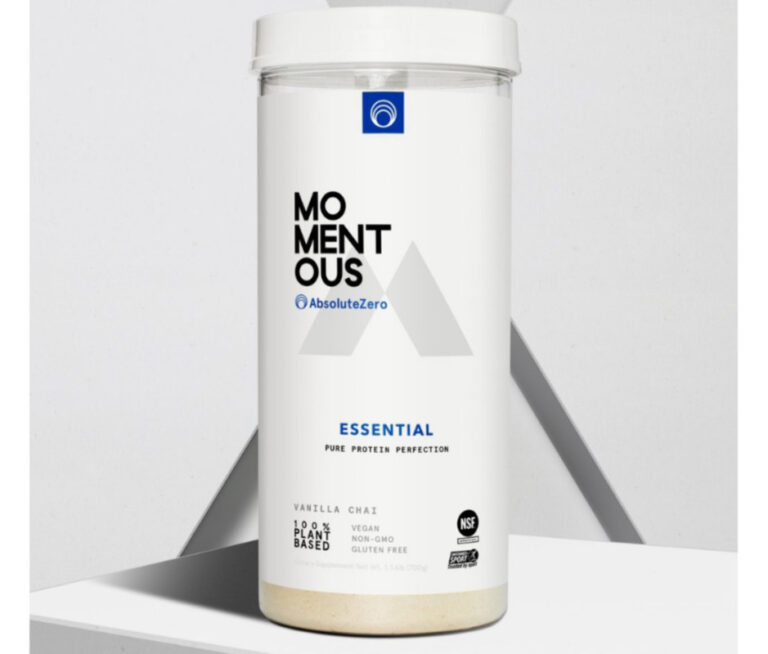You’ve likely noticed the growing trend of plant-based eating—including everything from vegetarian diets to going completely vegan. But if building muscle is one of your health goals, you might be wondering how plant-based foods will affect your gains. Are plant protein and animal protein equal, or is one really better than the other? This guide will help you get a handle on the differences between the two.
Related: 11 Amazing Deals On Protein Powders and Fitness Supplements at Vitamin Shoppe
To start, it’s important to understand the role protein plays in the body. In the most basic sense, proteins are the building blocks of life, and they’re found in every single cell in the human body. Protein is one of the three “macros” you often hear about (the other two are carbohydrates and fat) that together provide all of the nutrients humans need to function. It’s well known that protein is essential for building muscle. What you may not realize is that protein has many other key functions, like transporting molecules throughout the body, maintaining cells, supporting your immune system, and acting as enzymes to help your body function and run optimally.
But to understand the difference between animal and plant protein, you need to dive a bit deeper. All proteins are made up of amino acids: If you think of a protein as a brick wall, the individual bricks are the amino acids. Of the 20 different amino acids found in the human body, nine of them need to be obtained through the food we eat—the remainder occur naturally in our bodies. The debate over animal proteins versus plant proteins begins when looking at those nine essential amino acids.
Related: 5 Satisfying Low-sugar, High-protein Smoothie Recipes
Historically, animal protein has been considered the superior protein source. In a traditional westernized diet, the primary animal protein sources come from poultry, beef, pork, and dairy foods. These protein sources are considered “complete” because they provide all nine of the essential amino acids, and they’re the most similar to the naturally occurring proteins found in the human body. Humans are able to digest, process, and use animal protein very efficiently. In addition, animal proteins are often high in other essential nutrients that aren’t as common in plant proteins, like vitamin B12, vitamin D, the omega fatty acid DHA, heme-iron, and zinc.
Plant proteins (derived from vegetables, legumes, nuts, and seeds), on the other hand, are often low in some of the essential amino acids, or don’t contain all of the essential amino acids required to build protein. But plant foods also provide many nutrients that are not found in animal proteins, like vitamin C, flavonoids, quercetin, catechins, and many antioxidants.
When it comes to building muscle, though, animal protein reigns supreme. Research shows that plant protein is inferior when it comes to digestibility and muscle building. This is most likely due to the presence of an amino acid called leucine—it’s responsible for starting the muscle building process in the body, and plant protein sources often have a low leucine content. Regardless of what protein option you choose, make sure it’s high in leucine (around two to three grams per serving).
Related: 10 Protein-packed Recipes With Only 5 Ingredients Each
Bottom line: It’s all about balance and moderation, even if animal proteins have an edge on plant-based sources for muscle growth. If you opt for animal proteins, avoid processed meat and stick with high-quality sources like eggs, fish, dairy, lean beef, and poultry—and make sure you get plenty of fruits and vegetables on your plate, too. If you choose a plant-based diet, make sure to consume a variety of vegetarian foods to get an adequate amount of amino acids and other nutrients.
For those athletes trying to find a good plant protein for post-workout recovery, here are three great options.
1. Momentous Plant-Based Protein Powder
The Momentous line of protein powders delivers a 100-percent plant-based protein. It’s the highest quality plant protein source available on the market by far, and it combines the perfect ratios of pea protein isolate with rice protein concentrate to maximize the available amino acids. The flavor is unrivaled, and it’s NSF-certified, meaning it has been tested for banned substances and contaminants like lead.
[$60; livemomentous.com]
2. OWYN Plant-Based Protein Powder

OWYN offers a plant-based powder that provides 20 grams of protein from peas, pumpkins, and chia. It also provides a full serving of organic greens, probiotics, omega-3s, and trace minerals.
[$16.99-$38.99; liveowyn.com]
3. Performance Inspired Plant-Based Protein

This powder provides 20 grams of multi-source plant protein combined with probiotics and fiber to help aid in digestion.
[$41.99; pi-nutrition.com]
